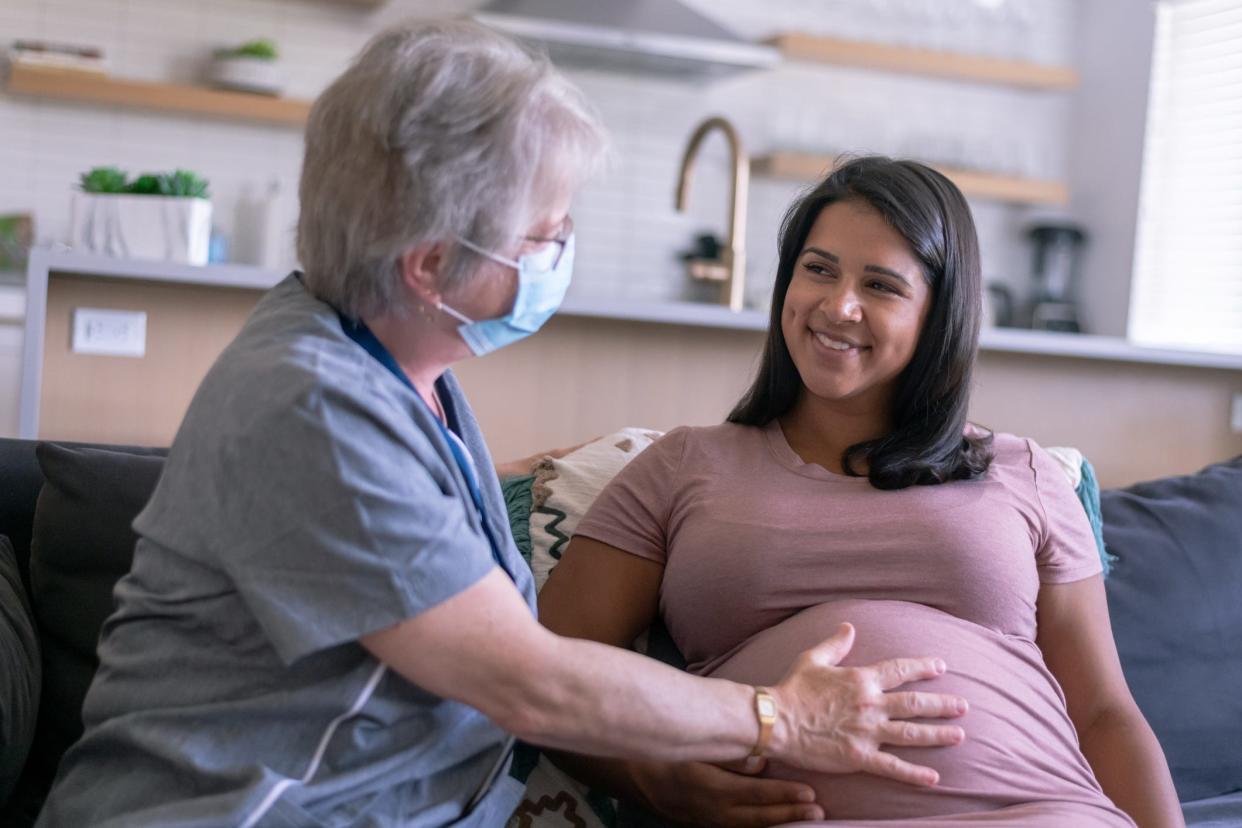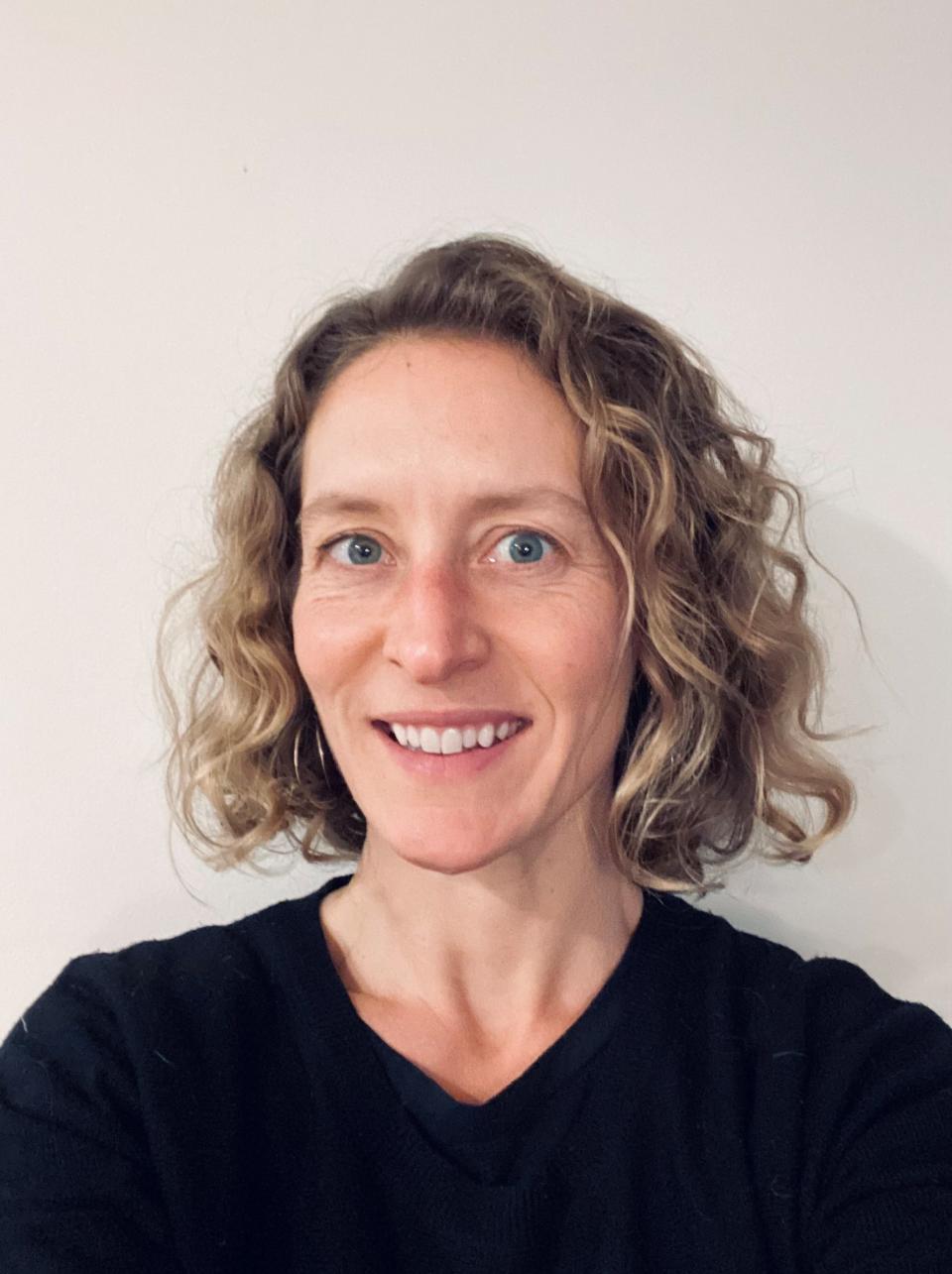Empowering mothers: Seacoast midwives provide a patient-centric birth experience

Midwives on the Seacoast have been part of the local health care professional force for at least half a century. Wentworth-Douglass Hospital in Dover is marking the 50th anniversary of having midwives on staff. Judy Edwards led the way as the first midwife at the hospital in 1972.
Today there are certified midwives who will do home births and other midwives who work within a hospital system and do in-hospital births. Both maintain working relationships with local doctors for consultations and help if an unexpected situation arises during labor or delivery. They often provide a mother and family with a more personal birth experience and maintain a relationship with a mother from before they become pregnant in some cases right through the post-partum period and help them adapt to new motherhood.

Molly Steele works currently as a certified nurse midwife at Wentworth-Douglass Hospital. She said things have changed a lot.
"The Avis Goodwin Center was created in 1959, with a goal of providing prenatal care to women who were just showing up at the hospital when they were ready to deliver," Steele said. "Midwifery soon followed as the next step and the practice has grown from there."
Steele said when she came to Wentworth-Douglass in 2005, there were about a half dozen midwives, with an average of 800 babies born there yearly.
"Now, we have 18 midwives, and we deliver 1.200 babies a year," she said.

Satisfaction in delivering generations of babies
Caroline Lasewicz is a nurse midwife for Core Physicians. She has been practicing for over 22 years, and has reached a point where the babies she helped deliver are returning to have her deliver their own babies.
"Having the privilege of being here 22 years, I see the new generations of babies and in many cases I still have relationships with the original moms. I live locally and see many of them out in the community," Lasewicz said. "I find great joy in educating teens, in helping women become pregnant, through prenatal care, labor care and of course the birth and what comes after. I will sit with women as they grieve. It is not always happy, but it is always a beautiful thing to me, and I consider it a privilege to be part of it."
A long history of midwifery
In colonial America, midwives were responsible for assisting with most births. They were usually women who had given birth themselves and were considered the "experts" on delivering babies. In most cases, doctors were not readily available and many were not well-versed in childbirth.
With the incredible advances in medicine today, why are women still choosing midwifery? Well, because they have also advanced, are good at what they do and one of their goals is to provide a total, all-inclusive personal experience.

"I think part of the reason people are drawn to midwifery is because of its model," Steele saide. "There is more time spent with the woman and her family. It is true patient-centered care."
Personal attention at center of midwives' work
Emily Bearse is the director of midwifery at Dartmouth-Hitchcock Medical Center, the new director, for about one month now. She is not new to the practice of midwifery.
"I have been practicing for over eight years, in various settings including Boston Medical," said Bearse. "I spent two and half years working in Africa. What is special about midwifery is we still view labor and birth as a normal process, part of a woman's life, so much more than a medical incident. We are higher touch, lower intervention. We work with the woman and with her whole family."
Personal attention is a big component of midwifery.
"We generally have more time in our schedules to spend with the women we work with," said Lasewicz. "We follow them all the way through, from when they first discover they are pregnant, through well baby and mom care, offer education, be there through the birth experience and postpartum care. People think of a midwife only in terms of the birth, but we do much more. We will sit with you through labor and be the extra hands and support you need."
Nurse midwives have prescribing authority.
"Some women are hesitant thinking they will be required to have a birth free of medication," said Lasewicz. "That can be the case if that's what you want. But it does not need to be. You can have a midwife and an epidural, too. It's your choice."
Midwives work seamlessly with doctors, hospitals
Making choices is the biggest part of the process, said Bearse. She said it is birth your way and that's what many women want their experience to be.
"We have 11 midwives here at DH," said Bearse. "All prenatal, postnatal, postpartum visits are done here in our offices. All the births we attend are at the hospital. What differs is that we want what you want, if at all possible. We tend to spend more time with you. We get to know you and your family. Just by the nature of our training, we focus a lot on education. Families choose us because they are looking for that trusting relationship and that's what they will find with us. We are open to questions and we want to tailor your birth to fit your life. Where do you envision giving birth? What is your medical history? Tell us about your home life. We want to know all we can learn about you."
Lasewicz has a working relationship with other Core physicians and her deliveries most often take place at Exeter Hospital.
"There are conditions where we would do an automatic consultation and my women know that is for their, and their baby's safety," she said. "Other times, we will do consults, if there is anything I might have even the slightest concerns about. As a nurse practitioner, I can address most situations, but it is nice to know there is a second set of eyes if needed."
Bearse said conditions like severe preeclampsia, an underlying medical condition or the sudden need for a C-section are triggers to get the doctors involved. She said they will not hesitate to meet that need if it arises.
"As certified nurse midwives, we will be there even if a doctor or surgery is needed," said Steele. "We will assist with the process and remain there with our patient."
Steele said the midwives at Wentworth-Douglass have a good relationship with the team of doctors they work with, and also with midwives who do home births in the area. Women who come to the practice see most, if not all of the midwives, so when it comes time to deliver, they will be comfortable with who is on call.
Lasewicz also assists the doctors. She did her interview with us as she was preparing to assist with a Caesarean birth.
Lasewicz said she went to a small women's college where empowering women was a big part of the philosophy of her education.
"I got my nursing degree and in my senior year I took on a project about midwifery," she said. "I got a chance to see my first live birth. It was during this project that I decided on the trajectory of my life. I wanted to advocate for women in one of the most special times of their life."
"The beautiful thing is we can meet the patient where they are," said Bearse. "We want your birth to be empowering for you. We can be a fabulous team."
For more information, the American Colleges of Nurse-Midwives (midwife.org) provides certification for midwives and the Midwives Alliance of North America (mana.org) offers education, research, advocacy and community support.
This article originally appeared on Fosters Daily Democrat: Midwives empower mothers through a patient-centric birth experience

